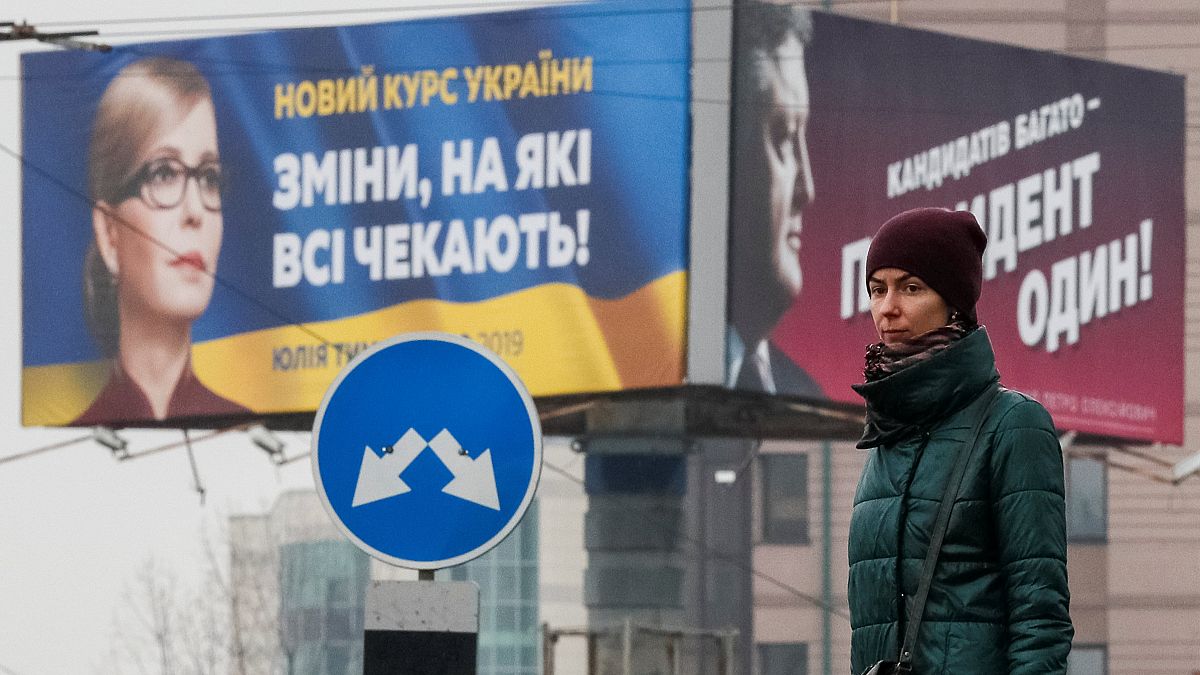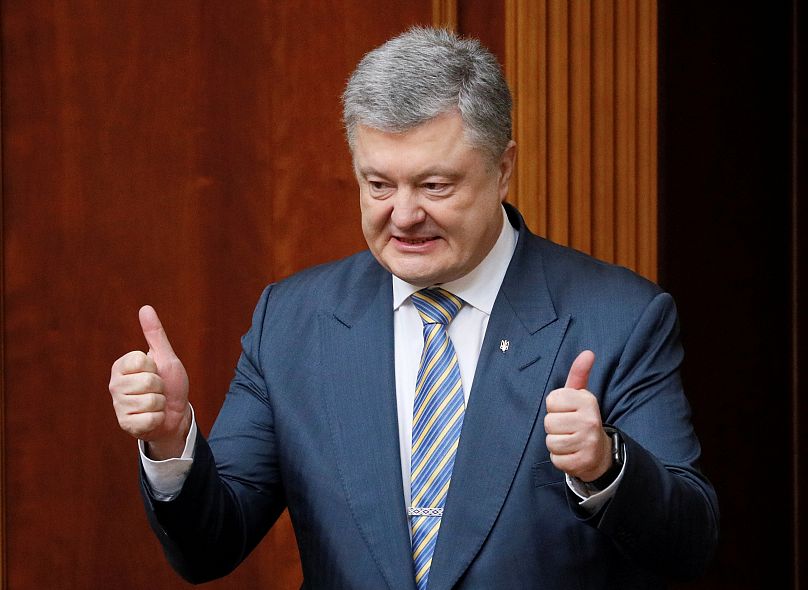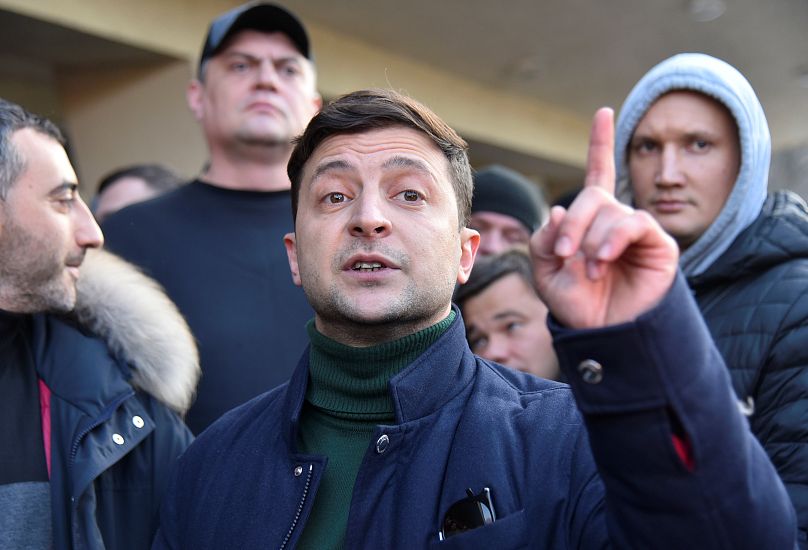Ukrainians won't have a shortage of candidates to choose from when they go to the polls to elect a new president. A record 44 people put their names forward, although five have since dropped out.
On March 31, Ukrainians will go the polls to elect their president. They will be able to choose from a very long ballot paper: a record number of 44 candidates registered initially, although the number has since declined to 39, following dropouts.
Recent opinion polls suggest none of them is on track to win an absolute majority, opening up the likelihood of a second round of voting on April 21.
This is the first nationwide public vote for Ukrainians since the snap elections of 2014. That poll was sparked when pro-Russian president Viktor Yanukovych was forced out of power by the “Maidan Revolution” that cost the lives of more than a hundred people, according to official figures.
Before Kiev could recover from the dramatic events, Russia annexed Crimea and backed illegal armed forces in eastern Ukraine.
The current president, Petro Poroshenko, was elected on May 25, 2014, as these events were unfolding, with the support of almost 55% of voters.
He promised peace in Ukraine, reintegration of the Donbas region, structural state reforms and closer association with western Europe.
What has Poroshenko done during his five-year term?
Poroshenko says his the achievements of his five-year term include:
- The reinforcing of the Ukrainian army amid ongoing conflict and containment of the conflict with Russia to avoid a full-scale war.
- The ratification of the Association Agreement with the European Union - the document that ousted president Viktor Yanukovych refused to sign after years of negotiations between the two sides.
- Visa-free access for Ukrainian citizens for short stays in all EU countries (except the UK and Ireland) and four other Schengen-associated countries. The list of countries with visa-free or visa-access-on-arrival for Ukrainians grew to 128, giving the Ukrainian passport a rank of 41 on the Henley Passport Index.
- Ukraine’s Orthodox Church being granted independence from its Russian counterpart.
Ukraine's challenges: conflict, corruption and a struggling economy
But problems remain in Ukraine and any new president will face a lengthy to-do list:
- The promised structural reforms are not going smoothly. The European Union has accused officials in Kiev of slowing them down. The fight against corruption has impressed no one, inside the country or outside. Many Ukrainians agree that the reforms are needed but not all, and one survey shows that the way in which reforms are being implemented is not popular. Areas under review include the judiciary, land reform and the health sector. Justice is a particularly sensitive issue. “Shameful" is how Amnesty International described Ukraine’s investigation of killings during the “the Maidan Revolution".
- The protracted conflict with Russia-backed forces in eastern Ukraine is still draining the economy. 64% of Ukrainians think that peace is what their country needs most. (Survey conducted by Kyiv International Institute of Sociology, the Rozumkov centre and research group “Rating” in autumn 2018. The survey excluded Crimea and the territories that are not under Ukrainian government control).
- Welfare: a drastic increase in household expenditure is another problem facing Ukrainians. The government is moving away from subsidising gas prices following demands from the International Monetary Fund. Ukrainians will not start paying for gas based on market prices until 2020, but already energy tariffs have turned out to be unmanageable for many.
- The wider economy also faces significant challenges. A debt default has been avoided so far and some economic growth achieved. But the climate for entrepreneurs is far from ideal. A promise to replace corporate tax with a tax on withdrawn capital was never fulfilled. Oligarchs still reign over key industries and members of parliament still enjoy immunity despite the generations of politicians promising to change the status quo.
Who is leading the race to be Ukraine's next president?
The current leader of the race is showman and comic Volodymyr Zelenskiy with almost 25% of public support so far. His rating directly reflects the frustrated aspirations of many Ukrainians and their mistrust towards politicians in power. He is linked to one of the most powerful Ukrainian oligarchs — Ihor Kolomoyskiy — who recently also endorsed him publicly.
The latest polls show that President Poroshenko with almost 17% and former prime minister Yulia Tymoshenko with just above 18% of support tie in second place.
Poroshenko is promising to renew the territorial integrity of Ukraine by diplomatic and political means and achieve the release of Ukrainian political prisoners in Russia.
Tymoshenko has made a dramatic return to mainstream politics promising Ukrainians a new constitution, cheaper energy tariffs, a reformed army and peace while vowing to make Russia pay for any damage it has done to the country.
Standing at 10,3% is the leader of the Civil Position party and former minister of defence Anatoliy Hrytsenko. Three other candidates who withdrew from the campaign endorsed Hrytsenko. In Ukrainian media, he is often cited as representative of a loose group of like-minded smaller political forces who describe themselves as “democratic parties in opposition". They share pro-European, pro-NATO and anti-corruption stances.
Just about 10% of support, according to opinion polls, has Yuriy Boyko, an ally of the ousted president Viktor Yanukovych. He represents one of many parties with leanings towards Russia.
Among the most active campaigners is Oleh Lyashko, who represents The Radical Party. He has previously been convicted on corruption charges. He promises affordable medicines, decent salaries and to bring back the death penalty. He is polling around 5.7%.
More than four-fifths of Ukrainians expressed their readiness to take part in the elections on March 31.


